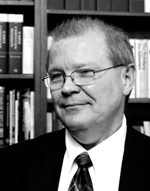[See series introduction here.]
 Today’s interview is with Terry Wilder, Professor of New Testament and Chair of the Biblical Studies Division at Southwestern Baptist Theological Seminary. Wilder completed his Ph.D. in New Testament Exegesis and Interpretation, University of Aberdeen, Scotland, 1998; M.Div. with Biblical Languages, Southwestern Baptist Theological Seminary, 1990; M.A., Biblical Studies, Dallas Baptist University, 1988; B.A., Religion, magna cum laude, Dallas Baptist University, 1986. He has authored, co-authored, and edited a number of books, and continues to contribute much in the field of NT scholarship. Given the purpose of this series, I must include a relevant excerpt from his bio page:
Today’s interview is with Terry Wilder, Professor of New Testament and Chair of the Biblical Studies Division at Southwestern Baptist Theological Seminary. Wilder completed his Ph.D. in New Testament Exegesis and Interpretation, University of Aberdeen, Scotland, 1998; M.Div. with Biblical Languages, Southwestern Baptist Theological Seminary, 1990; M.A., Biblical Studies, Dallas Baptist University, 1988; B.A., Religion, magna cum laude, Dallas Baptist University, 1986. He has authored, co-authored, and edited a number of books, and continues to contribute much in the field of NT scholarship. Given the purpose of this series, I must include a relevant excerpt from his bio page:
He is passionate about the biblical languages, NT backgrounds, hermeneutics, biblical theology, and expository preaching. An active churchman, he firmly believes that biblical scholarship should not be divorced from local church ministry. He often preaches and teaches in churches, leads mission trips, and speaks on ethical issues.
I enjoyed having Dr. Wilder as a professor during my time at Midwestern. I also remember him introducing me to his doctoral supervisor, I. Howard Marshall, at SBL (2009). Thanks, Terry, for taking some time to speak to these important issues!
1. How would you describe the relationship between your “scholarly” endeavors and your involvement in the ministry of the local church?
First of all, let me say that I do not think that scholarship should be divorced from local church ministry. I teach New Testament, so most of my involvement in ministry is in teaching or preaching. I also visit people to share the gospel and try to be an encourager and help for my pastor. Further, since much of my academic work is on pseudonymity, the NT, and ancient authorship, I have spoken in ministry venues on ethical issues and the trustworthiness of Scripture.
2. What led you to decide on the vocation (of pastor, scholar, or scholar/pastor) you now find yourself in?
I think God decided for me. After he called me into ministry, I went to university first planning on becoming a vocational evangelist, and then a pastor, but as time went on realized that my spiritual giftedness was in teaching. So, following the Lord’s leading, I began preparing for that vocation.
3. How would you describe any sense of “calling” you feel to do what you do?
Any sense of calling I have stems from Christ’s Great Commission to “go and make disciples” (Matt 28:19-20). I am concerned that the word of God be properly interpreted and faithfully taught to future generations (cf. 2 Tim 2:2). So, given that, I am particularly burdened for the training of pastors and others, especially in the biblical languages and in hermeneutics.
4. How might the chasm often present between the church and academy be more effectively bridged?
Academicians need to make it a point to get involved in the ministry of the local church, perhaps teaching Sunday School or something. Also, they should never forget their roots and learn to communicate difficult concepts in simpler terms. On the flip side, pastors and churches need to realize that eventually academic trends and challenges filter down to the churches, and thus it is important to take advantage of any help the academy may have to offer.